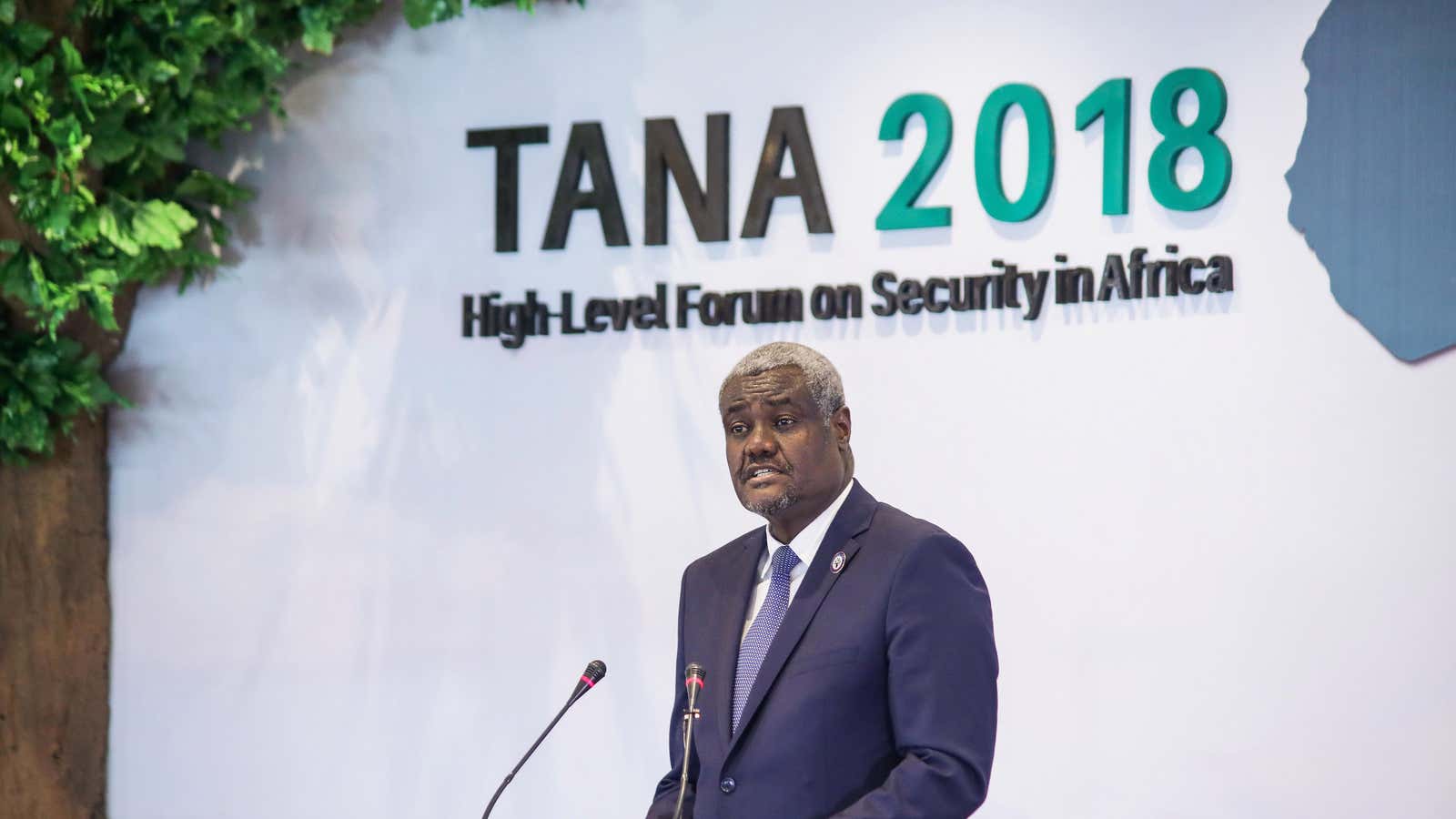Bahir Dar, Ethiopia
When the Libyan crisis began in 2011, the African Union wanted to use a political strategy to facilitate a transition of power, and by any means necessary, avoid war. Yet that policy approach was overridden by Western powers by way of the United Nations security council, leading to a military intervention, the overthrow and demise of president Muammar Gaddafi, and the eventual conflagration of Libya.
Cognizant of that watershed moment and others, African decision-makers this weekend gathered in Bahir Dar, Ethiopia for the high-level Tana Forum on security in Africa. The theme this year is about how the AU could better finance its own security agenda in order to reduce the continent’s dependence on donors and hence, keep foreign intervention at bay.
Africa is the region with the smallest military expenditure globally, allocating $39.2 billion in 2016 for its more than 1.2 billion population. This is despite the fact that the continent faces key security challenges including terrorism, violent extremism, ongoing wars, drug trafficking, besides clashes between herdsmen and farmers precipitated by the effects of climate change.
Currently, much of the budget to address these issues come from external funding. In fact, much of the AU’s budget comes from international donors, with 30 out of the 55 member states defaulting either partially or completely on their contributions. In 2017 alone, 73% of the AU’s $782 million budget came from international partners, with member states contributing $212 million, or a total of 27%.
To increase self-reliance and support peace operations, the AU has suggested a 0.2% import levy on eligible goods, which officials hope, will raise up to $400 million by 2020.
By owning and shaping its financial agenda, the continental body aims to not only improve its performance and governance structure but also assert its political legitimacy and credibility. The security reform agenda follows the passing of two signature AU decisions this year aimed at opening up the continent’s skies through a single air market and the establishment of a continental free trade agreement—the largest in the world since the creation of the World Trade Organization.
Beyond the rhetoric and promises, the bigger challenge of attaining a secured future begins now. The pressing question will be how to sustain long-term financing, strengthen the institutions that drive integration while bearing in mind how previous efforts floundered due to lack of implementation. The AU will also have to recognize that security reform is not just about governments and institutions but about people who face the dire consequences of policymaking every day.
But achieving fiscal autonomy is indeed a crucial first step in realizing “African solutions to African problems.” As AU chairman Moussa Faki says, “Without its independence, Africa is nothing at all. With its independence, it can be everything.”
